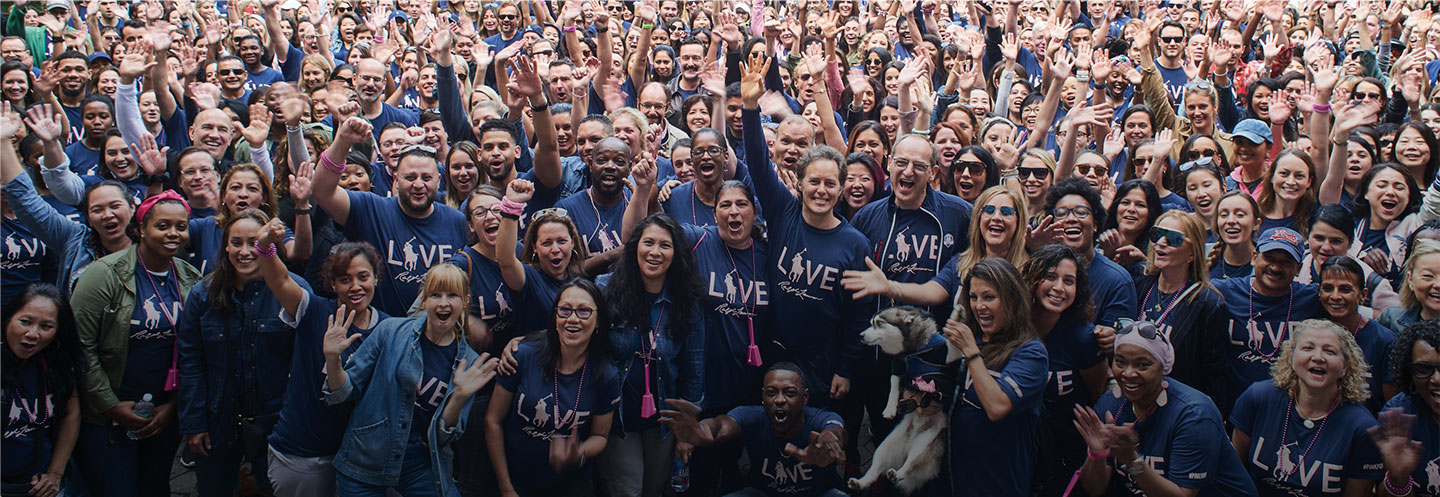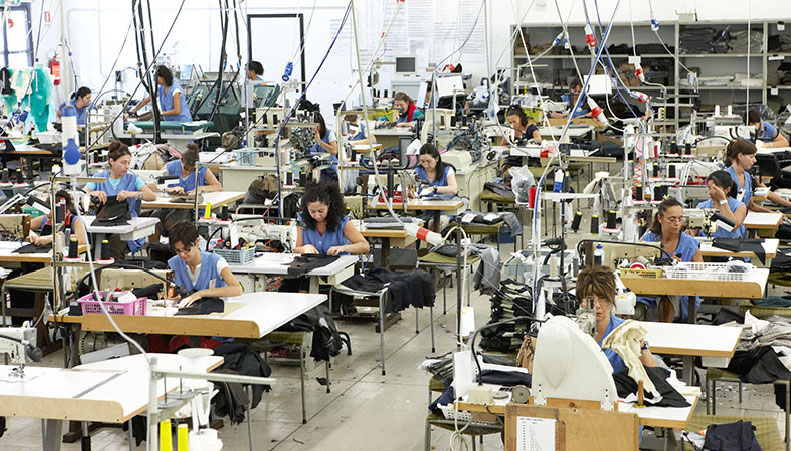
Champion Better Lives
ELEVATING OUR COMMUNITIES
Giving Time and Talent
The Ralph Lauren Corporation supports local community groups through monetary and product donations as well as through employee volunteering with our Ralph Lauren Gives Back program. This program creates inspiring opportunities for hands-on volunteering and fundraising for our employees. In FY19, thousands of Ralph Lauren employees donated over 14,000 hours of their time and talent.
PHILANTHROPY
The Polo Ralph Lauren Foundation (the Foundation), a distinct charitable entity established in 2001, supports programs for cancer care and prevention, education, and community building in underserved areas as well as those in need of relief or assistance. In FY19, total combined contributions from the Company and the Foundation totaled $5.5 million.
Cancer care and prevention
For over 15 years, the Ralph Lauren Center for Cancer Care (RLCCC) has focused on reducing healthcare disparities for underserved populations in New York City by providing access to high-quality cancer prevention programs and treatment. In the future, RLCCC is expected to more closely align with the Memorial Sloan Kettering Cancer Center, expanding the healthcare expertise and resources available to its patients.
Since 2000, Pink Pony has been our global effort in the fight against cancer. In FY19, 65 Ralph Lauren stores and offices in 19 countries hosted Pink Pony campaigns. Our sites also hosted 51 Pink Pony walks designed to raise awareness and funds, during which employees volunteered more than 5,000 hours.
Investing in PEOPLE
In FY19, our global workforce was 64% female, with women holding 53% of Senior Director and above positions. In the U.S., 58% of our employees identified with one or more diverse talent groups. For information on our approach to pay equity, read our annual UK Gender Pay Gap report.
More information on our compensation and benefits is located on our Careers page.
We strive to increase opportunities for women in our workforce globally and for female factory workers in our supply chain. In the apparel industry, the majority of supply chain workers are female, yet most management roles are held by men. This prevalence of gender inequality can lead to more frequent labor and human rights abuses such as sexual harassment and pay disparity. Because of this, a key aspect of our partnership with Better Work, an international organization focused on improving working conditions in the garment industry, includes working with factories to promote more women to supervisory roles.
Building a Responsible Supply Chain
CHAMPIONING OUR WORKERS
A Ralph Lauren piece embodies timeless style and quality, made with exceptional care and creativity by the people at every stage of our production process. We value the contribution of the 500,000 workers who make our products and support them by championing better working conditions throughout our supply chain.
Our approach to auditing is much more than a checklist. Our independent third-party auditors, as well as our own team, spend time with factory managers to identify skills gaps that limit their ability to achieve full compliance. Instead of simply pointing out problems, we provide guidance and coaching to support remediation efforts, and to embed the skills and procedures factory managers need. Over time, this leads to suppliers taking ownership of their performance and being accountable for their own compliance.
Our audits and staff visits at a garment supplier in southern China found that the factory struggled with proper record keeping. The factory had an inconsistent track record of meeting our standards for minimum wages, working hours, and human resources policies. We found at times they had wage payments below hourly minimum wages. Our relationship with the factory enabled us to obtain the commitment of senior management to a long-term remediation program.
After 18 months and a number of follow-up visits, the factory achieved full transparency in record keeping, increased average hourly earnings by 7%, and implemented a system to guarantee minimum wages. Worker responses were positive, reflected in a 15% improvement in worker satisfaction and a 41% reduction in turnover.
Empowering workers
While visiting factories, we also reach out to workers directly to validate our audit findings and to inform them about their rights. In FY20, we rolled out our RL Hotline to ensure that workers, and anyone else covered by our Fair Treatment Policy, have a safe and impartial place to bring their concerns.
We also partner with leading organizations to implement empowerment and learning programs across our supply chain. In FY19, we collaborated with Better Work to begin implementing gender equality programs within our active factories. In FY20, we will launch a partnership with BSR on their HERhealth supply chain initiative to raise awareness of critical health topics such as healthy eating, personal and menstrual hygiene, and maternal health.

Social Compliance Program
Our social compliance program is designed to protect worker rights in our supply chain from the first day their factory starts work for us. We use third-party audits extensively, augmented with audits conducted by our in-house team and by assessments and progress reports from Better Work. We are working to expand the scope of our monitoring to include all Tier 2 suppliers, such as artisans and hand workers.
audits for Ralph Lauren
site visits
Our suppliers are also required to comply with our Foreign Migrant Worker Policy, which states that suppliers should minimize the use of recruitment agents, and we do not permit agencies to require workers to pay fees to obtain a job.
For more information on our approach to supplier responsibility, read our Operating Guidelines.

